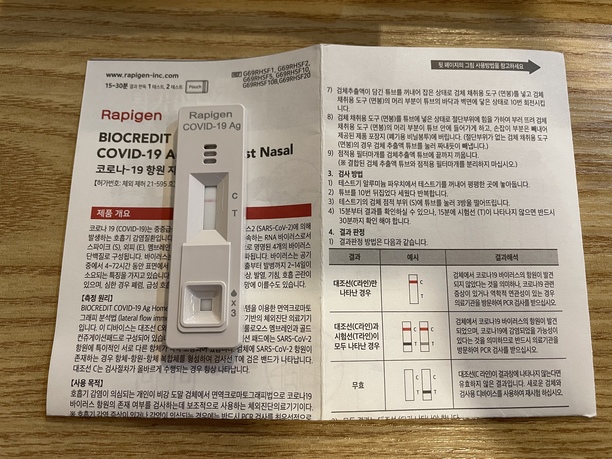Having been stuck at home for years, I had been periodically checking on countries where I could travel to. With the Covid restrictions easing up gradually, I was quick to jump on some relatively cheap airline tickets at the end of March, booking a flight to South Korea from the end of April until the end of May. The trip, for the most part, was enjoyable, but the Covid restrictions created some extra hurdles. I aim to give a comprehensive list of all the considerations that prospective travelers need to consider when planning a trip while these restrictions are in place.
First, if you test positive for Covid, then all plans are off. So, for flight and hotel bookings, be sure they offer free cancellations or changes. For flights, many of the cheapest fares do not allow for cancellations or waived change fees. In the event that you test positive for Covid, you just gave the airline hundreds of dollars for nothing. Insurance costs about $100, so also factor that into the cost. I was careful to book a flight with Delta for the cheapest fare that didn't have change fees (I avoided budget airlines like Spirit, Frontier, Air Canada, etc). Delta's Basic Economy has serious restrictions that could make changes prohibitively expensive, so I made sure to avoid that (I booked a Main T class ticket). As for hotel bookings, I only booked for one week, in case plans changed. I also made sure the booking was cancelable for as long as possible. In my case, it could be cancelled up until two days before the flight. That would be around the time when I would get my Covid test results, indicating whether I can start the trip or not.
Next, Covid tests are expensive. There's a few things contributing to the cost here. First, the type of test is pretty stringent. It needs to be a PCR test, which is the most expensive type. Next, the timeline is very short. To get onto the flight, you need to take the test within 72 hours and get a negative result in time to fill out the required forms. Then, when you land, you need to take another PCR test within 24 hours and only when you get a negative test result can you go out of your hotel room. 6-7 days into the trip, you need to take another Covid test. Fortunately, this one does not need to be a PCR test and can be an antigen home kit. Finally, on the trip back, you need to take a final Covid test within 24 hours of the departure, and once again, get a negative result in time to fill out the required forms. That's four Covid tests throughout the trip. Two PCR tests, and two antigen tests. Then there's the costs. The most expensive one is the first one. I looked everywhere and very few facilities have the capability to provide test results within the timeframe required. The place I ended up going to cost me $180. The second test is taken in South Korea. Protip: there is a Covid testing center in the Incheon airport where you can get a PCR test for 80,000KRW, which is $70-80. Otherwise, locating a hospital or testing center outside that administers a PCR test is difficult and expensive. I ended up going to the Inje University Seoul Paik for mine, which cost me $170+. The third Covid test is the cheapest. You can walk into any pharmacy and ask for a Covid test, which costs around 10,000KRW, which is ~$10. I took a picture of the results, in case I needed to supply proof. Finally, the last Covid test, I took at the Incheon airport the morning if my afternoon flight. I opted for the antigen test, but that set me back 80,000KRW. All in all, this is around $500 in Covid tests for this trip, not counting all the time spent dedicated to making the trips to take these tests. You have to bring paper copies of the test results to the airport when checking in. If there is one thing that would dissuade me from making this trip again, it would be these Covid tests. I can only imagine what a nightmare it would be if I had tested positive on any one of them.
On the topic of Covid, to avoid being quarantined for 7 days, you need to be vaccinated and boosted (boosted at least 14 days before the trip). You need to bring your vaccination card with you and have that available throughout the various checkpoints.
Finally, there's all the forms that need to be filled out. For the flight to South Korea, there is a bit of confusion. There's QCODE and K-ETA. To be safe, I filled out both. QCODE is free but K-ETA costs 10,000KRW. There's also a health questionnaire that I filled out using Delta's FlyReady app, which I have to admit, was very helpful. On the flight back, I had to again fill out the forms on the FlyReady app. Luckily, this was more straightforward and everything was all in one place.
Originally, I had planned on hitting a few countries, like Thailand or Vietnam, or Taiwan or Japan if they reopened, which they never did. After the hoops I had to jump through just to get to South Korea, I decided to just stay put.
Bring enough masks to wear throughout the duration of the trip. N95s are preferred. One thing I noticed in South Korea: everyone wears masks diligently, but many are cloth or regular face masks, and the subways and buses do get very crowded. I'll post about more details about my trip separately.
